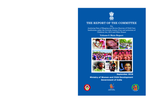The effects of the KEEP foster parent training intervention on child externalizing and internalizing problems
The aims of this investigation were to (a) examine the effectiveness of the KEEP intervention at reducing behavior problems among children in foster care, as assessed by the Child Behavior Checklist (CBCL), during implementation of the intervention by a community agency using a randomized design and (b) determine whether the intervention is effective at reducing internalizing forms of behavior problems.

